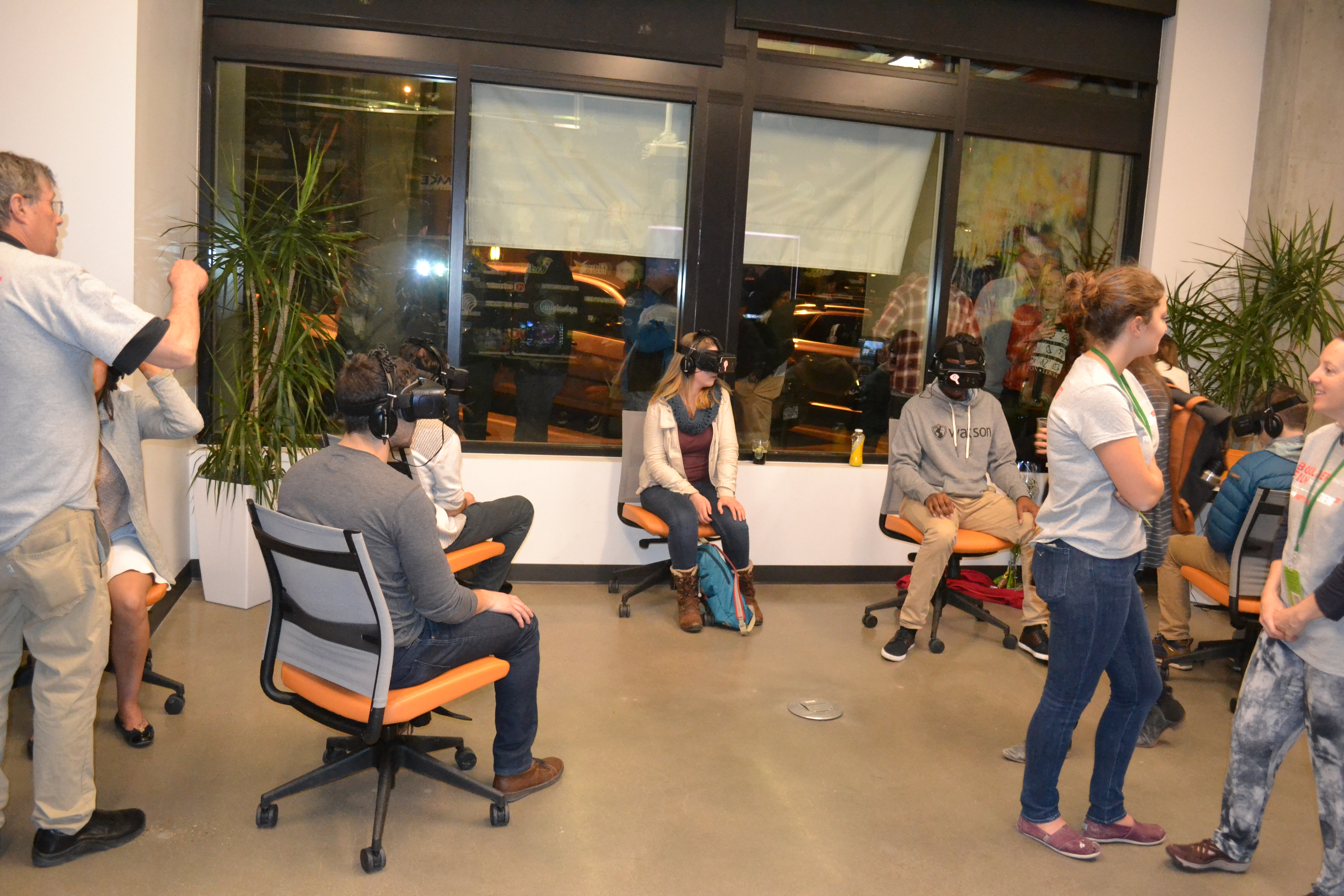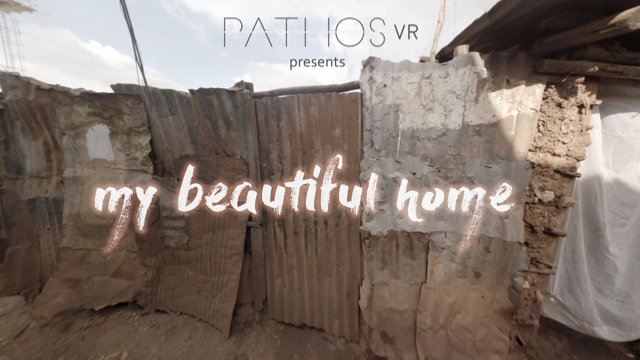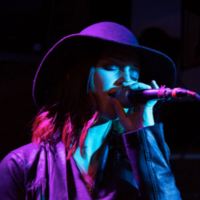
Not many can deny that the ever changing face of technology can be daunting. We depend on it to keep our lives going, and the pressure to keep up with it isn’t always stress-free. However, there are some exciting developments in the technology game. Filmmakers are creating a platform for virtual reality that will change the way we tell stories in film with the hope of creating a more inclusive experience for film goers. No matter your experience with VR, it seems to be the future, and it will change how we connect visually and emotionally with the stories being told.

This year BIFF brought the experience to us for free. There was a line out the door at Galvanize today for the first ever BIFF Virtual Reality Pavilion. People were eager to experience this new form of film, and for many, it was their first time. Virtual reality hasn’t quite taken off yet. It’s a new frontier in the film world that not many filmmakers are diving into just yet. Not like Romaine Vakilitabar, an up and coming filmmaker with talent to spare, and he’s passionate about the virtual reality experience.
“Despite the connectivity that exists we’re still living in these fragmented worlds that don’t interact much and can’t empathize.”
Vakilitabar is the director of My Beautiful Home, a visually stunning film shot in Kibera, the largest slum in Africa. His film is approximately seven minutes long and requires specialized VR equipment to view, but its narrative and visuals make it a film not to be missed. Seen through the VR eye, the spectator can travel to the harsh environment of Kibera and experience an unfamiliar world guided by the narration of a young woman who lives there. The viewer is the center of what is happening as the film pans 360-degrees, spectators will be immersed in an environment filled with unexpected beauty. Vakilitabar spoke briefly about his film.
Are you interested in making feature films?
Vakilitabar: I’m focusing my career right now on VR and creating these empathy based experiences that hopefully communicate and fix a lot of the misperceptions that exist in the world.
Why Kibera? What drew you to the largest slum in Africa?
Vakilitabar: K-23 production agency heard about what I was doing, and they were like wow we’d love to have some VR work done in Kibera. A couple of days later I was on a flight to Nairobi and met with the team.
Why VR?
Vakilitabar: Despite the connectivity that exists we’re still living in these fragmented worlds that don’t interact much and can’t empathize.
What is My Beautiful Home?
Vakilitabar: Beauty taking a different shape.
Do you plan to make longer films adapted for VR capability?
Vakilitabar: The technology just isn’t there yet. Anything longer than ten minutes gets a little overwhelming. Hopefully, you can create a broad experience in five minutes.
What was your favorite part of making this movie?
Vakilitabar: Befriending people and gaining trust. Having to check preconceived notions at the door and just be there to talk to people and not have any expectations.
Vakilitabar never expected to work in film, but it’s VR that interests him as it’s a way to bring a deeper understanding to the audience. We can’t wait to see what he does next and where virtual reality will go from here.
.@BoulderFilmFest is underway and boasts virtual reality films this year. This story and more on this week’s news: https://t.co/imhvchp2Rb. pic.twitter.com/1fC0cpmJXW
— City of Boulder (@bouldercolorado) March 3, 2017




